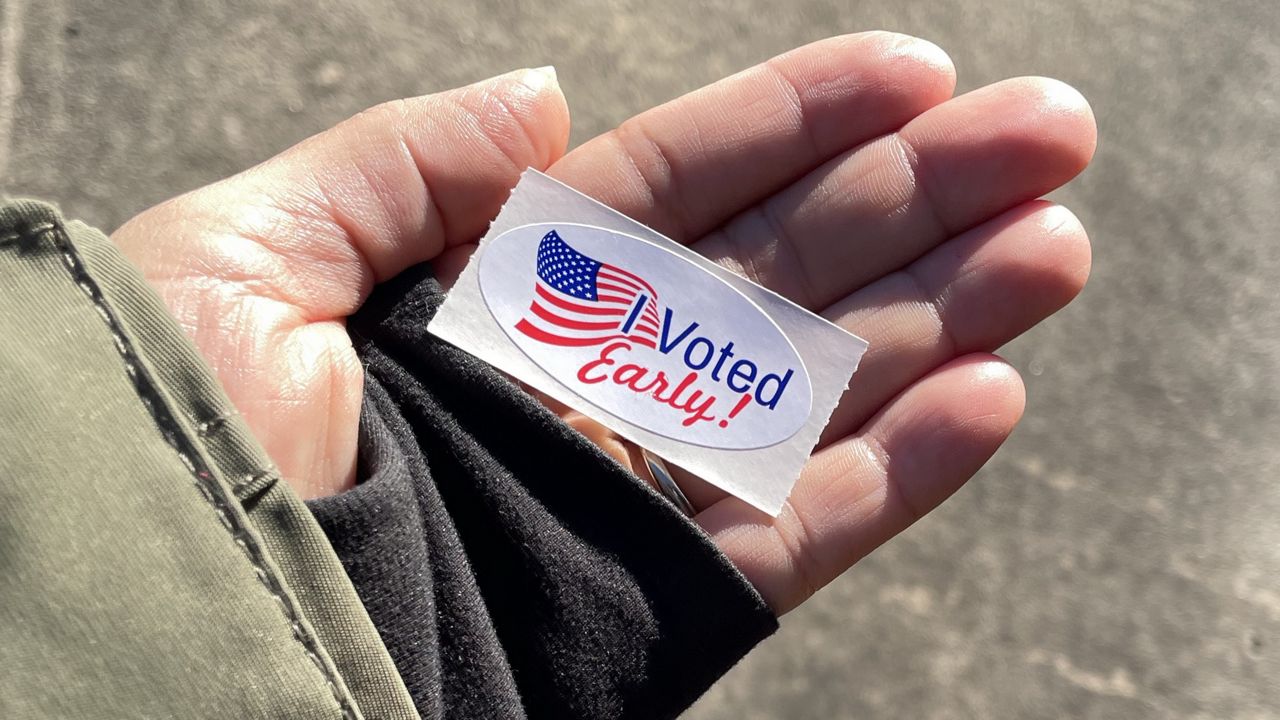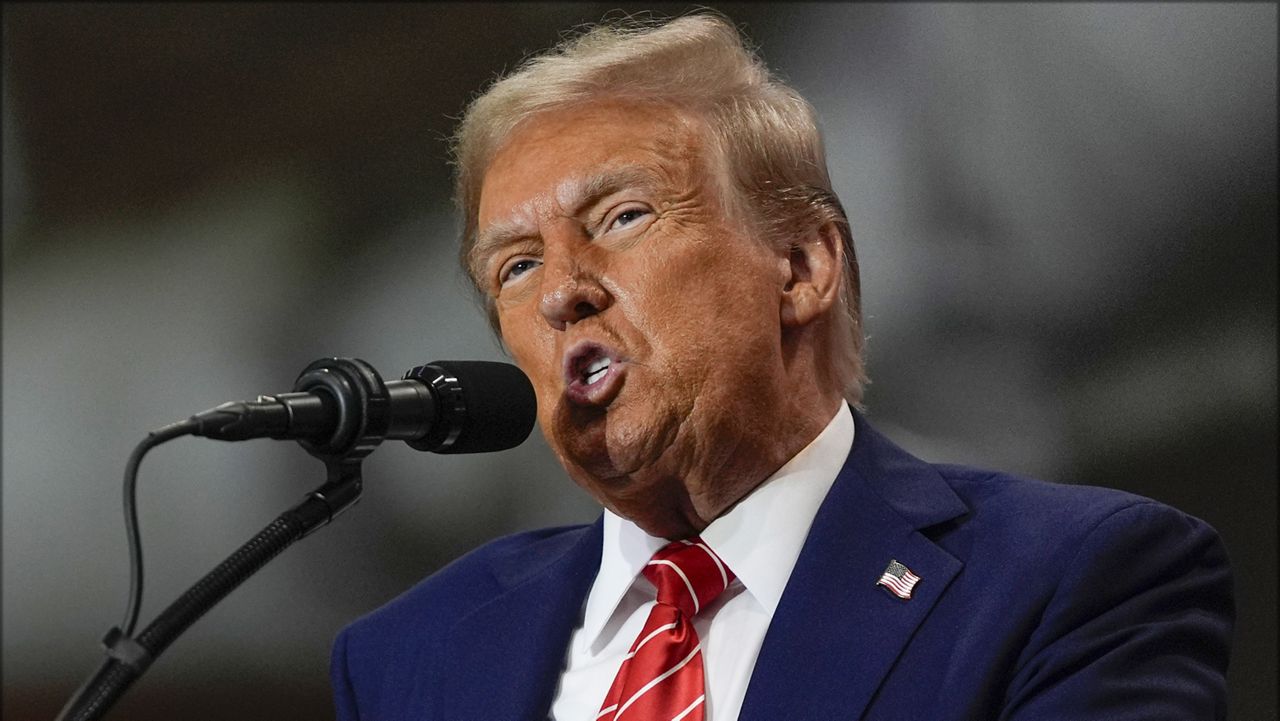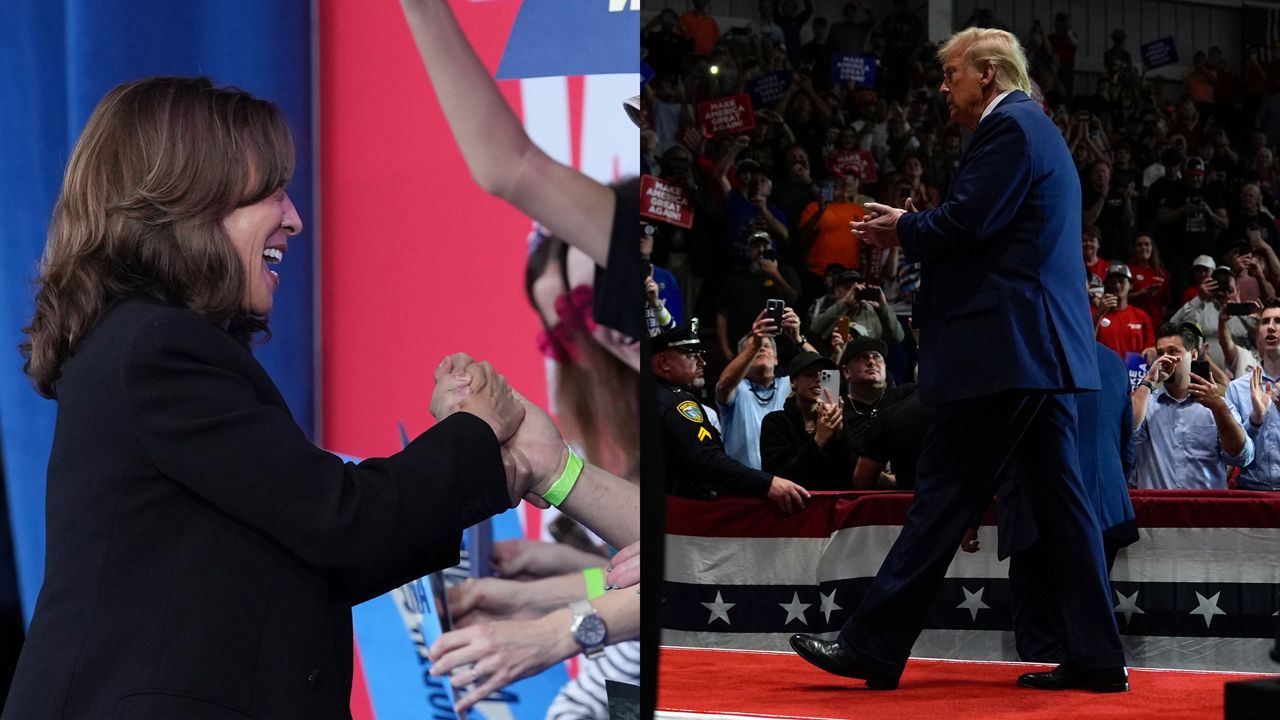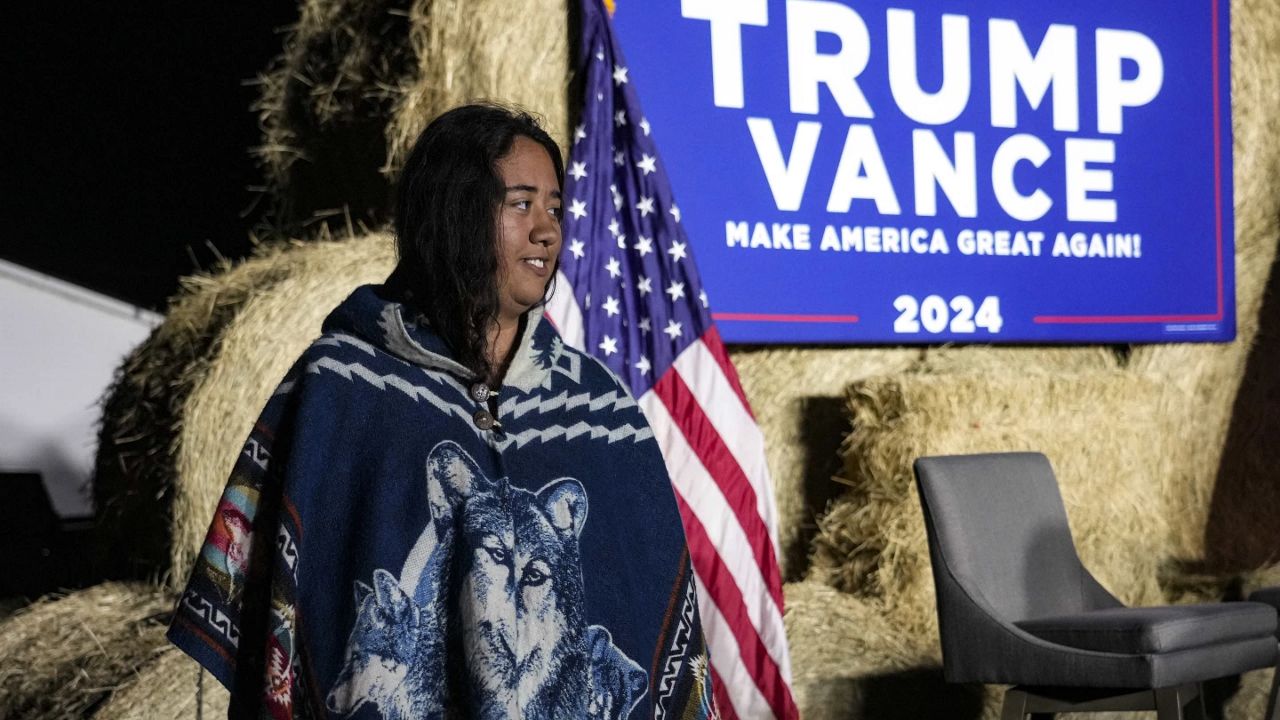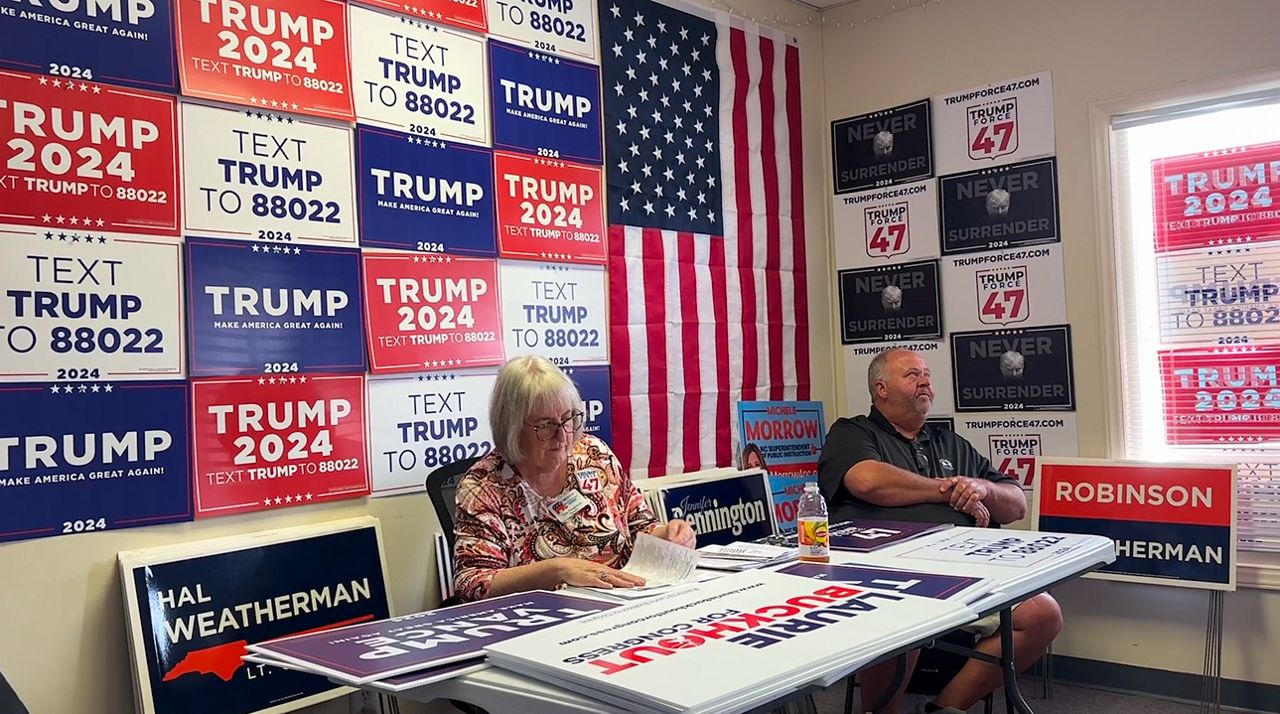Early in-person voting is now open in North Carolina and runs through Saturday, Nov. 2 at 3 p.m. Election Day is Nov. 5.
North Carolina is getting a lot of attention from national candidates this year as they vie for the state's 16 electoral votes in the presidential contest.
Voters in North Carolina will also cast ballots for governor, state attorney general, the state's 14 congressional seats and every seat on the General Assembly.
During one-stop early voting, North Carolina residents can cast their ballots in person at any early voting site in their county. People can also register and vote on the same day at their county's early voting sites. That is the last opportunity to register to vote before Election Day.
Voter ID is required to cast a ballot.
To find the early voting site nearest you, click here.
You can also find a full list of early voting site locations and times by clicking here.
For more election coverage in North Carolina, click here.
Early votes are also considered absentee votes. To find out if your vote was counted, look for the “Your Absentee Ballot” section in the Voter Search database.
Ballot status will be seen under Voter History. It may take a few weeks to check your ballot status because your county needs time to finish the post-election process of updating your voter history.
North Carolina voters with absentee ballots can mail them to their county board of elections office or take them to an early voting site during the early voting period. Mail-in ballots will be secure and delivered to the county board of elections for processing, according to the state board.
The deadline to request an absentee ballot is Oct. 29 at 5 p.m.
Curbside voting is available during early voting for those who qualify for assistance. Visit the Help for Voters with Disabilities to learn more.
All voters may vote with or without a photo ID, but it is important to note when exceptions are made.
In general, in-person voters must show an acceptable photo ID when checking in at a voting site during early voting or on Election Day.
A vast majority of North Carolinians will show their driver’s license, but there are other forms of acceptable photo IDs, including:
- A state I.D. from the NC DMV
- A driver’s license or nondriver’s license from another state
- U.S. passport or card
- A free North Carolina Voter Photo ID provided from a County Board of Elections
- A student ID approved by the State Board of Elections
- A state or local government or charter school employee ID approved by the State Board of Elections
To see a full list of accepted photo IDs, visit the North Carolina Board of Elections website.
There’s a full ballot this year. Offices up for election include: president and vice president, governor, lieutenant governor, North Carolina’s 14 members of the U.S. House of Representatives, the entire General Assembly, a seat on the North Carolina Supreme Court and numerous local races.




